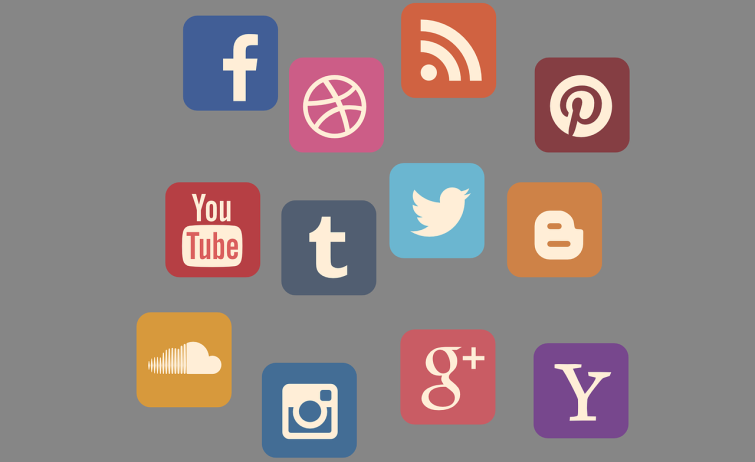It has been less than two decades since social media announced its appearance on the world stage. Within such a brief span of time, it has penetrated into most aspects of our life. How many of us are not on social media today? Both Facebook and YouTube have more than 2 billion active users across the globe. WhatsApp has around 1.5 billion. Is this good? Or is this mass following a threat? In Covid-19 times like these, social media takes an even greater prominence in our lives, being the platform that most individuals use to spread word or get updates from.
Ever since its inception, there have been arguments, both for and against social media. Let us delve a bit into this, examining both these sides and try to get to the end of it.
The Two Extremes

In 2011, a father in China was united with his son who was abducted 3 years before. How did he find his son? With the help of Weibo, the social media platform that is touted as China’s version of twitter.
Last year, several people were lynched to death or gravely hurt in India over false claims of abduction. What was the reason? Fake news that was peddled through certain social media platforms.
Over the past two decades, there have been several instances similar to the two examples that have been discussed above. They do well to sum up the potential of social media both for positive things as well as for negative ones.
Giving a voice to the masses
Before the advent of social media, the term media meant print media, tv, movies and the internet. But social media was something different. So, what made it stand out? It gave voice to each and every single one of its users. It gave a platform to the common man. Thus local issues and injustices were raised successfully. Those who could never raise their voices against injustice found relief through Facebook, WhatsApp and other social media websites. More people could be organised to contribute to good causes.
But what were the negative fallouts of having many voices? Fake news and false alerts! A lot of opinions and remedies that are being peddled in the online space are inaccurate and misleading. The very fact that ‘fake news’ has become a great threat was highlighted when Collins Dictionary named it the word of the year for 2017. Social media is also being used by certain individuals to spread communal hatred, discriminatory content and defame others. Many celebrities and other individuals have fallen victim to online hate campaigns.
Uses in governance

Governmental agencies and international organisations have also sought to harness the tremendous potential of social media in a positive way. They have used online platforms to spread awareness about different developmental initiatives and coordinate responses during emergency situations. These ways of spreading awareness have proven to be effective, as can be seen from the most recent Covid-19 episode, where the government managed to get a million downloads within the first two weeks of the launch of an app ‘TraceTogether’. This app was created with the purpose of easing the process of contact tracing, and from the reaction of Singaporeans, it shows that we value the use of social media especially when it comes to spreading awareness and positivity.
The case of Covid-19
Covid-19 has affected life across the globe. So, how has social media responded to the pandemic?
On one hand, we have a tremendous chunk of fake news and haphazard solutions that are being spread through these platforms. A number of messages are forwarded each day stating that a cure has been found to combat the virus. False homemade remedies are being spread. Certain countries had asked their citizens to remain indoors at specified hours. Soon, messages were spread on social media stating that pesticides would be sprayed from the air during these hours.
But at the same time, social media has also been an invaluable ally to us in our fight against Covid-19. Governments have used it to send real-time updates. People have learned from social media about the devastation caused by the virus in various parts of the world and this has helped us all become more aware of the seriousness of the situation. The World Health Organisation (WHO) launched a helpline on WhatsApp and Facebook to answer questions related to Covid-19. Thus, because of the use of social media, almost any individual with access to the internet can directly get in touch with the WHO and get the most credible information about the pandemic.
But at the same time, social media has also been an invaluable ally to us in our fight against Covid-19. Governments have used it to send real-time updates. People have learned from social media about the devastation caused by the virus in various parts of the world and this has helped us all become more aware of the seriousness of the situation. The World Health Organisation (WHO) launched a helpline on WhatsApp and Facebook to answer questions related to Covid-19. All thanks to social media, almost any individual with access to the internet can directly get in touch with the WHO and get the most credible information about the pandemic.
The need for e-literacy
So now that we have gone through some of the relevant facts about the use of social media, let us ask ourselves a question. Is social media to blame for all its negative fallouts? The truth is that social media is only as good/bad as the people who use it. What we need therefore is e-literacy, which is the ability to use the internet and social media platforms with a sense of maturity and responsibility. We must focus on ensuring that social media users are capable of filtering out fake news. The habit of double-checking and verification must trickle down to all of us. We must learn to be vigilant against spreading inaccurate information.
Social media is a powerful tool. Whether it turns into a boon or bane depends upon the way we choose to use it. Let’s all strive to use social media in a way that benefits all! 🙂
Exam Smart Tips
Exam Smart Tip #1 – How to Encourage Our Kids to Speak Better?
Exam Smart Tip #2 – How to avoid carelessness?
Exam Smart Tip #3 – Establishing Routines!
Exam Smart Tip #4 – Let’s Read Carefully!
Exam Smart Tip #5 – Beating the Exam Fever!
Exam Smart Tip #6 – How to Eat Right for the Exams?
Exam Smart Tip #7 – How to Avoid a Meltdown?
Exam Smart Tip #8 – Taking Stress out of Tests
Who We Are
Mission statement – “Empower every student to achieve full potential”
88tuition Pte Ltd offers the best PSLE Tuition Singapore for children looking to ace the PSLE exam. With effective learning materials and high-quality explanatory videos by experienced trainers, children are provided with the best online PSLE tuition.
With the basics learnt well, children will be able to grasp advanced concepts easily. Looking for the best PSLE math tuition, PSLE Science tuition and PSLE English tuition in Singapore? 88tuition has got you covered. The online training videos and assessments are designed in a way that children are made to enjoy the learning process.
UEN 201817310C
271 Bukit Timah Road; #03-08; Singapore 259708



